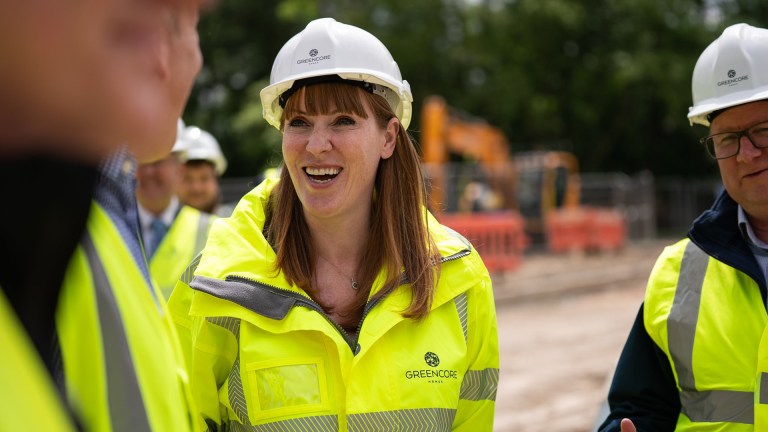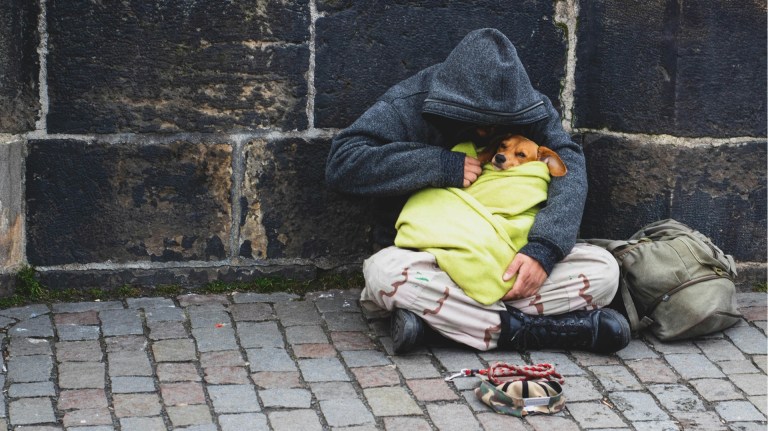“That is why it is so vital that the government provides hosts and refugees with the right support, funding and advice – including a review of funding, and help to make arrangements for long term accommodation so Ukrainians can live independently and avoid the risk of homelessness.”
The Homes for Ukraine scheme, launched in March, has seen around 75,000 Ukrainian refugees arrive in the UK. Sponsors agreed to allow the refugees to remain in their homes for a minimum of six months.
But an Office for National Statistics (ONS) survey this week found that a quarter of sponsors of Ukrainians as part of the Homes for Ukraine scheme do not want to continue the arrangement beyond six months.
The government acknowledged that some placements had broken down but insisted the responsibility for rehousing Ukrainian refugees lay with councils.
A government spokesperson told the Big Issue: “The overwhelming majority of people are settling in well but in the minority of cases where family or sponsor relationships break down, councils have a duty to ensure families are not left without a roof over their head. Councils also have access to a rematching service to find a new sponsor in cases under the Homes for Ukraine scheme.”
Sponsors have expressed concern that there is “no guidance or advice” on how they can help refugee families beyond their initial six month stay. Meanwhile Ukraine refugees have said they have been told they must declare themselves homeless to be added to the local council’s social housing list.
Advertising helps fund Big Issue’s mission to end poverty
Lauren Scott, executive director of the charity Refugees at Home, said: “We are aware of instances where local authorities are choosing to treat Ukrainian families as homeless, rather than attempting rematching through Homes for Ukraine.
“It’s quicker for getting people off the streets, and that has to be the priority for families with children. That means that vulnerable Ukrainian families will be treated as homeless and housed in hostels and hotels, just like those from Afghanistan. It is a nightmare situation – the very one that we had hoped to avoid.
“We are urging the government to review and streamline the system so that experienced charities like ours can broker new placements in homes, not hostels.”
Responding to the government’s figures, the Local Government Association (LGA) said: “Councils, sponsors and Ukrainian guests all need to know what the options are as we get closer to the end of the six-month initial placements period so they can start planning now. There is a significant risk that – even if rematching is available – many Ukrainian families may need to present as homeless because of a lack of sponsors or other options.
“Urgent joint work is needed both to be clearer to hosts and their guests about the challenges in finding affordable housing across the UK, and to seek solutions to the pressing housing needs in the short and the long term. This will require a joined up approach across all the programmes that welcome new arrivals to the UK. Support to sponsors may also need to be enhanced to encourage people to sponsor long term particularly as inflation and energy costs increase, and we are working with government to achieve this
“We support the prime minister’s agreement that those arriving through the family visa scheme should be able to be re-matched with a sponsor and access existing funding rather than being forced to present as homeless if they can no longer stay with their family. Work is needed on how councils can work with government and the community, faith and voluntary sector so those offering their homes can be quickly matched with a family in need regardless of their route to the UK.”
Advertising helps fund Big Issue’s mission to end poverty
Refugee rights campaigners say the responsibility to rehouse Ukrainian refugees is putting a big strain on already stretched council resources and called on the government to produce a centralised approach to providing follow-on housing.
“What we urgently need from government is a clear, workable approach to allow those whose placements do break down to find new matches as smoothly as possible,” Scott said.
“Currently, it is down to individual local authorities to decide whether an arrangement is suitable and safe – in other words, if they want to find a new host, guests need their council’s permission to move. And if they want to go to another area, the new local authority also has to approve the move. Without agreement from both councils guests risk dropping out of the Homes for Ukraine scheme, and the new host will not receive the ‘thank you’ payment.”










